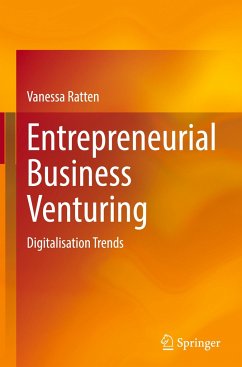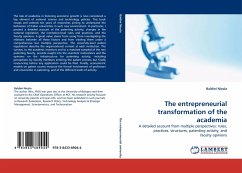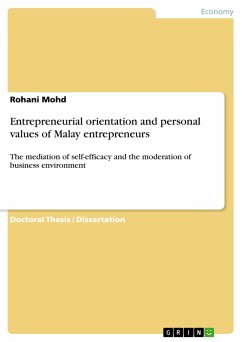
Entrepreneurial Orientation in Academia

PAYBACK Punkte
0 °P sammeln!
Entrepreneurial firms and new venture creation are important drivers for economic growth. Hence, emphasis is put on the question how to adequately stimulate and s- port new business creation. The corresponding discussion has not excluded academic organisations such as universities - quite the contrary. In Germany, this discussion was intensified by changes in the Employee Invention Act (Arbeitnehmererfinder- setz), which now obliges researchers to report an invention to the sponsoring univ- sity, which in return has to decide how the invention it will be exploited. Sub- quently, inventions and...
Entrepreneurial firms and new venture creation are important drivers for economic growth. Hence, emphasis is put on the question how to adequately stimulate and s- port new business creation. The corresponding discussion has not excluded academic organisations such as universities - quite the contrary. In Germany, this discussion was intensified by changes in the Employee Invention Act (Arbeitnehmererfinder- setz), which now obliges researchers to report an invention to the sponsoring univ- sity, which in return has to decide how the invention it will be exploited. Sub- quently, inventions and patents have emerged as a attractive economic resource for universities. This explains why university administrators have great interest in und- standing how the creative and entrepreneurial orientation of researchers or entire - search teams can be controlled, steered, and enhanced. The discussion we are having in Germany today began in the US more than 20 years ago. With the Bayh-Dole-Actof 1980, a shift in the allocation of property took place similar to the introduction of the Employee Invention Act in Germany today. In ad- tion, the notion of entrepreneurial activities in the context of research organisations has a long-lasting tradition in the US, and the current German system could learn a lot from understanding these developments. This has been the motive for Jan Boehm to look deeper into the field of entrepren- rial orientation in academia, in particular in the US.














